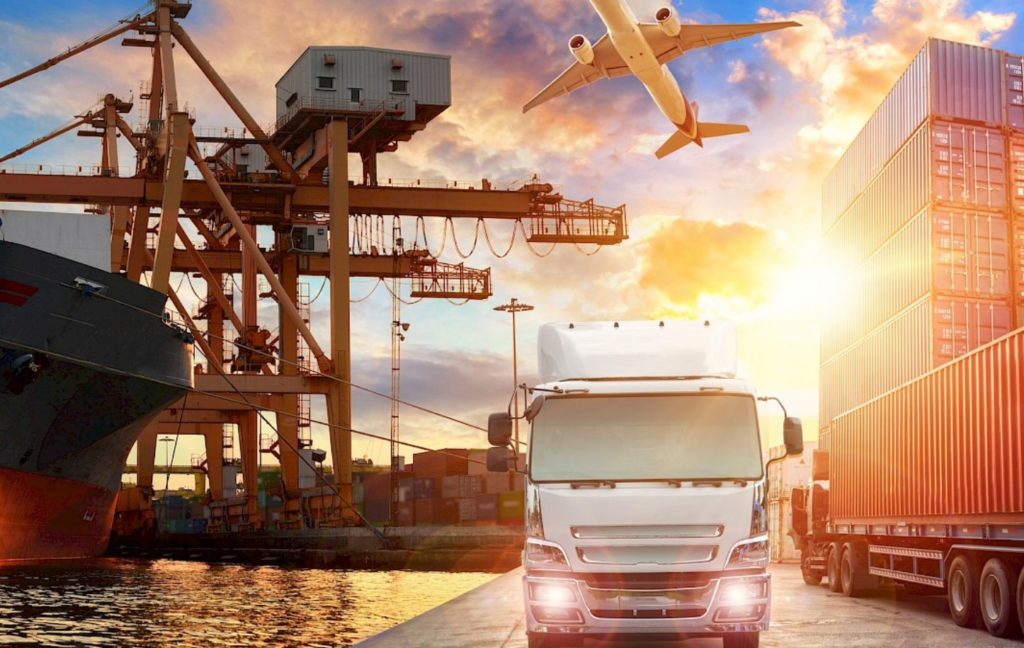
Of all the businesses operating around the world, those that plan the transport of goods between cities, states and nations are some of the most important of all. Facilitating international trade in an era of globalized economic cooperation, these transportation companies require extremely sound planning if they’re to succeed in the digital age – and out-compete one another for an advantage in a competitive marketplace.
This article provides the tips you’ll need to build your company into a successful competitor of the logistics and transport industry, helping you capture a greater market share and build a scalable business for the future.
Going Green

One of the biggest trends – and one you’ll have been unable to ignore – is the growing trend towards green energy and green transport that’s currently dominating headlines around the world. Being eco-friendly as a business is now one of the most important corporate social responsibilities, and that’s a difficult circle for transport companies to square. But, with smart planning, you can lead the way in this field, by:
- Buying green ‘bonds’ to offset your energy omissions
- Using carbon-neutral devices in the office space, and making sure you’re investing in green energy
- Training staff on how to be more eco-friendly in their working life
- Setting up a fund to help plant trees and make the world a more eco-friendly place
You see, it’s not beyond the wit of man to act green even within an industry that produces greenhouse gases – you just have to think about how you can confront the environmental issues that are coming to define our age.
There is a whole host of benefits of your logistics and transport company going green, such as the following:
1. Saving money

Being more energy efficient means saving money in the long term. While you may have to invest in some new tech such as solar panels, for example, this will pay-off in the long run. You will save money on utility costs, and if you reuse material, you will save even more money.
Transport can be a costly business, and it can be difficult for your company to reduce their carbon footprint because of the traveling involved. That doesn’t mean you cannot make an impact, though.
Invest in transport that is more efficient, such as transport that doesn’t give off as many fumes. By doing this, you will save more money.
2. Improved employee morale

Going green can help foster a more positive attitude amongst your employees, especially as many more people want to work for a business that cares for the planet. Spread the positivity of being green by having eco-friendly initiative progams in place, where if someone were to lower their impact by so much, they are rewarded. Sustainability should be part of a company’s culture.
3. Going green is a status symbol

Companies that go green are viewed more highly than those that do not, so if you want to be held in high-regard, practice green practices so that you are looked upon more favorably. When you put in a green program in place, be sure to market it so that your customers are aware of your company going green.
4. Improved marketing capabilities

A business that has gone green has a whole new market to target. You can produce content but also speak clearly and confidently about how your transport business is implementing the changes and what that means for you as a company. People are more invested in businesses that make an effort to go green, and if you produce the right content and distribute it properly and on the correct social media platforms, you are likely to spread your company’s new ethos and expand your reach.
Millennials are more likely to support a business that is actively looking to reduce their carbon emissions, and one thing millennials are good at, is spreading the word of a business that is doing their part for the environment. Word-of-mouth is the most valuable form of marketing, and going green is a type of publicity you cannot buy. You are expanding your transport company’s visibility, making your business much more noticable.
Planning Your Business Protection

As well as helping your business grow green – thus avoiding the ire of environmentalists and those in government who may seek to sanction your business – there are plenty of other things that you can do to protect your investments. You may, for instance, choose to:
- Diversify your assets in case your transport business suffers hard times
- Buy a comprehensive commercial auto insurance policy from a reliable company like next-insurance.com
- Contact lawyers who’ll be able to represent your business should you need their help
- Work with financial experts in order to understand the level of investment you should place in your business
The list goes on – and can only stop when you feel that all the areas of your business that could potentially go wrong are accounted for. The key here is to invest in longevity and to avoid the destabilizing effects of bumps in the road as you develop your ongoing business strategy.
Investing in Technology for Efficient Logistics
In today’s fast-paced world, the transport and logistics sector is undergoing a significant transformation, driven by advanced technologies. Implementing state-of-the-art logistics and transport technologies, such as route optimization software, can drastically improve efficiency and Portage Logistics are a leader in these departments. For instance, companies like UPS have reported saving millions of miles and gallons of fuel annually by leveraging route optimization tools. Additionally, GPS tracking systems not only ensure timely deliveries but also provide customers with real-time updates, enhancing transparency and trust. Digital platforms further streamline operations, making it easier to manage and monitor shipments. By embracing these technologies, businesses can not only reduce operational costs but also significantly enhance customer satisfaction.
Building a Resilient Supply Chain
The recent global events, from natural disasters to geopolitical tensions, have underscored the importance of a resilient supply chain. Companies can no longer rely on a single supplier or region. Diversifying suppliers ensures that if one link in the supply chain breaks, alternatives are readily available. For example, Apple sources its components from multiple suppliers across different countries, ensuring uninterrupted production. Moreover, having contingency plans in place, like backup storage or alternative transport routes, can be a lifesaver during unexpected disruptions. By prioritizing supply chain resilience, businesses can ensure continuity and maintain their reputation in challenging times.
Navigating the Maze of Regulatory Compliance
The transport industry is governed by a myriad of regulations that are constantly evolving. Staying updated on these changes is crucial to avoid potential legal pitfalls. For instance, the introduction of the Electronic Logging Device (ELD) mandate transformed how drivers in the U.S. record their working hours. Companies that proactively adapted to this change avoided hefty fines. Regular training sessions and workshops can equip teams with the knowledge to remain compliant. By staying ahead of the regulatory curve, businesses can operate smoothly and avoid unnecessary legal complications.
Adopting a Customer-Centric Approach
In the age of instant gratification, customers expect more than just timely deliveries. They seek personalized experiences. Offering tailored logistics solutions, like customized packaging or delivery slots, can set a company apart. Real-time tracking, for instance, empowers customers, reducing anxiety associated with waiting. Moreover, responsive customer support can turn a negative experience into a positive one, fostering loyalty. Companies like Amazon have thrived by prioritizing customer needs, proving that a customer-centric approach is the key to long-term success.
Planning Prowess

Logistics and transport are really all about planning. You’re planning how to get products from A to B, often over complex systems of transport which include sea, land and sometimes air. What this means for your business is simple: your USP needs to be that you’re better at planning than other companies, i.e., your orders are not late, and you’re able to predict the future success of your orders efficiently.
Usually, this will mean setting up a sophisticated system of data analysis in order to track orders across borders, keeping your customer service at a top-level. Listening to your customers and helping them with any issues they are having is an important part of any business, so be sure to listen and lend your services to those who are seeking advice.
These tips will help all logistics and transport companies succeed in 2025 and beyond. Be sure to audit your business so that you can streamline your company and reach new, promising heights that’ll bring in more business and customers.











